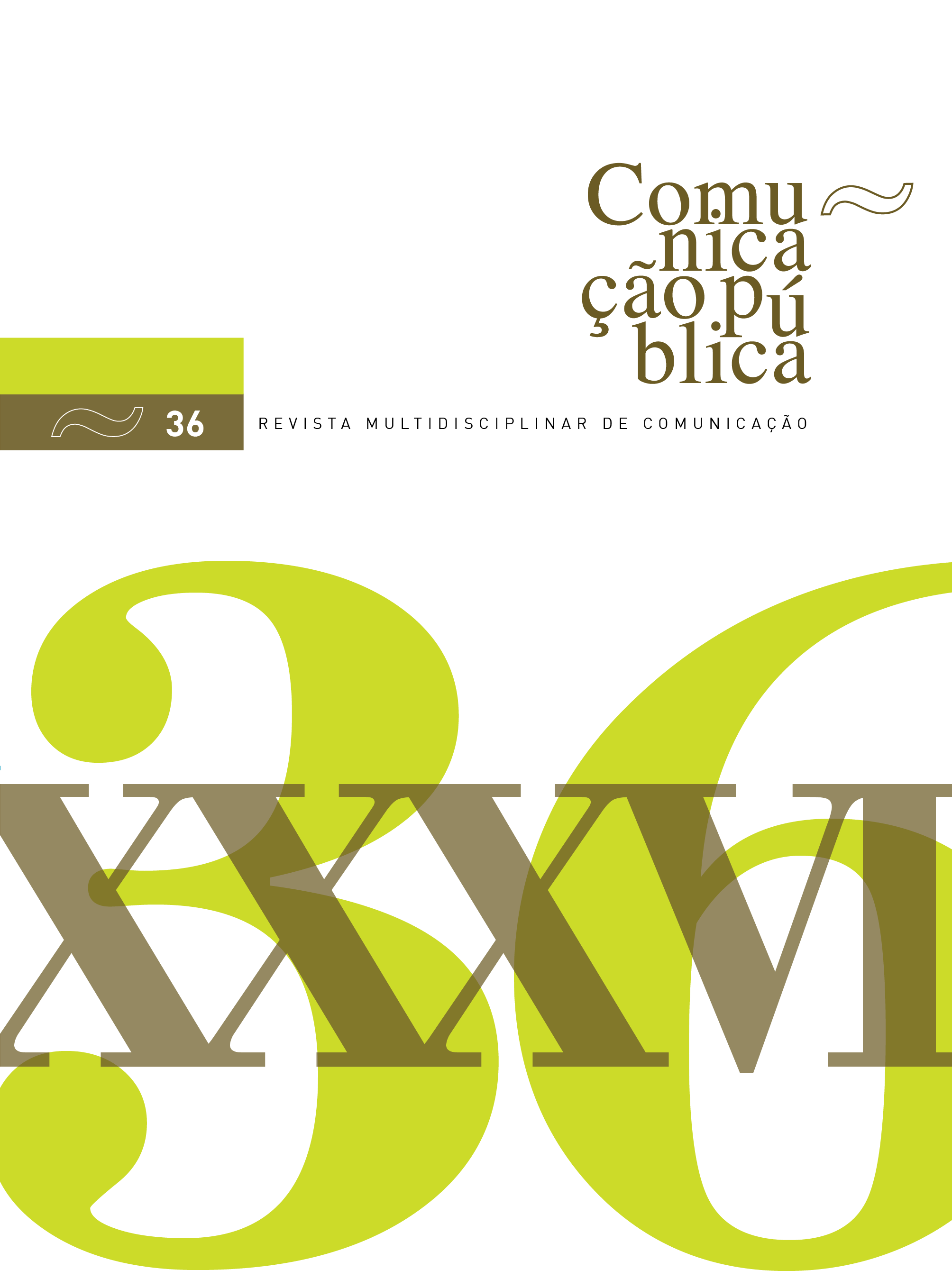PR Education
valued skills by Portuguese professionals
DOI:
https://doi.org/10.34629/cpublica793Keywords:
Public Relations, professional skill, PR education, higher educationAbstract
Taking into account the changes brought about by digital transformation and social networks, as well as the generational differences in pre-university education, this study aims to identify and analyze the competences valued by professionals in Portugal, especially those related to recent graduates. Through a content analysis of 87 interviews, the existing and predominant competences in the country were identified and compared with those mentioned in the existing literature. The results highlight the predominance of general competences, with an emphasis on those related to communication and digital content. These echo the reflections of Margarida Kunsch, Kate Fitch and Jacquie L'Etang, suggesting that in spite of the local dimention of the study, it is in line with global trends in the field. This frame of reference can guide curriculum development and stimulate reflection on public relations education.
Downloads
References
A3ES. (s.d.). Glossário. https://www.a3es.pt/pt/documentos/ documentos/glossario.
Auger, G. A. & Cho, M. (2016). A comprehensive analysis of public relations curricula: Does it matter where you go to school, and is academia meeting the needs of the practice? Journalism & Mass Communication Educator, 71, 50–68. https://doi.org/10.1177/1077695814551830.
Baetzgen, A. & Tropp, J. (2013). Owned media: Developing a theory from the buzzword. Studies in Media and Communication, 1(2), 1–10. Redfame Publishing. https://doi.org/10.11114/smc.v1i2.172.
Bardin, L. (1977). Análise de conteúdo. Edições 70.
Brunner, B., Zarkin, K. & Yates, B. (2018). What do employers want? What should faculty teach? A content analysis of entry-level employment ads in public relations. Journal of Public Relations Education, 4(2), 21–50.
Chappell, C., Hawke, G., Rhodes, C. & Solomon, N. (2003). High level review of training packages: Phase 1 report: An analysis of the current and future context in which training packages will need to operate. Australian National Training Authority.
Chartered Institute of Public Relations. (2022, s.d.). State of the Profession 2022 report. https://cipr.co.uk/CIPR/CIPR/Our_work/Policy/PR_research.aspx
Commission on Public Relations Education. (2018, April n.d). Fast forward: Foundations and future states. Educators and practitioners. http://www.commissionpred.org/wp-content/uploads/2018/04/report6-full.pdf.
Coombs, W. T. & Rybacki, K. (1999). Public relations education: Where is pedagogy? Public Relations Review, 25(1), 55–63. https://doi.org/10.1016/s0363-8111(99)80127-1.
Cornelissen, J. (2023). Corporate communication (7th ed.). SAGE Publications.
Doyle, A. (2019). Top skills employers seek in college graduates. The Balance. https://www.thebalance.com/top-skills-employers-seek-in-college-grads-4030755.
Fitch, K. and L'Etang, J. (2020), Problematising history in the public relations curriculum. Corporate Communications: An International Journal, 25(4), 703-716. https://doi.org/10.1108/CCIJ-11-2019-0122
Finegold, D. & Notabartolo, A. S. (2010). 21st-century competencies and their impact: An interdisciplinary literature review. William and Flora Hewlett Foundation. http://www.hewlett.org/uploads/21st%20Century_Competencies_Impact.pdf.
Flynn, T. (2014). Do they have what it takes? A review of the literature on knowledge, competencies, and skills necessary for twenty-first-century public relations practitioners in Canada. Canadian Journal of Communication, 39, 361–384.
Gonçalves, G. (2008). As Relações Públicas em Portugal. Um avisão da profissão através do currículo do ensino superior. M. (orgs) Comunicação e Cidadania. Atas do 5º Congresso da Associação Portuguesa de Comunicação. 192-201.
Gonçalves, G. (2009). Public relations in Portugal. An analysis of the profession through the undergraduate curriculum. Public Relations Review, 35(3). https://doi.org/10.1016/j.pubrev.2009.05.003.
Krishna, A., Wright, D. & Kotcher, R. L. (2020). Curriculum rebuilding in public relations: Understanding what early career, mid-career, and senior PR/communications professionals expect from PR graduates. Journal of Public Relations Education, 6(1), 33–57.
Kuckartz, U. (2014). Qualitative text analysis: A guide to methods, practice & using software. SAGE.
Kunsch, M. (2017). A formação universitária em Relações Públicas: novas demandas e desafios da sociedade contemporânea. Revista Internacional de Relaciones Públicas, 14(VII), 5-22. http://dx.doi.org/10.5783/RIRP-14-2017-02-05-22
Meganck, S., Smith, J. & Guidry, J. P. D. (2020). The skills required for entry-level public relations: An analysis of skills required in 1,000 PR job ads. Public Relations Review, 46(5). https://doi.org/10.1016/j.pubrev.2020.101973.
Todd, V. (2014). Public relations supervisors and Millennial entry-level practitioners rate entry-level job skills and professional characteristics. Public Relations Review, 40(5), 789–797. https://doi.org/10.1016/j.pubrev.2014.05.002.
Van Ruler, B. (2005). Commentary: Professionals are from Venus, scholars are from Mars. Public Relations Review, 31, 159–173. https://doi.org/10.10106/j.pubrev.2005.02.022.
Verhoeven, P., Zerfass, A. & Tench, R. (2011). Strategic orientation of communication professionals in Europe. International Journal of Strategic Communication, 5(2), 95–117. https://doi.org/10.1080/1553118X.2011.561080.
Downloads
Published
Issue
Section
License
Copyright (c) 2024 Direitos do Autor (c) 2024

This work is licensed under a Creative Commons Attribution-NonCommercial 4.0 International License.
Os conteúdos da Comunicação Pública estão licenciados com uma licença Creative Commons - Atribuição-NãoComercial 4.0 Internacional.


